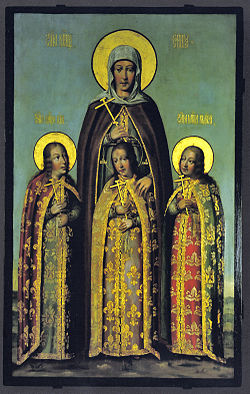 | |
| Pronunciation | /ˈvɪərə,ˈvɛrə/ |
|---|---|
| Gender | Female |
| Origin | |
| Word/name | Slavic |
| Meaning | "Faith" |
| Region of origin | Europe |
| Other names | |
| Nicknames | Věrka, Věrča, Věruška |
| Popularity | see popular names |
Vera (Cyrillic : Вера: Véra, "faith") is a female given name of Slavic origin. In Slavic languages, Vera means faith. [1] The name Vera has been used in the English speaking world since the 19th century and was popular in the early 20th century. [2] In Turkish Vera means piety. [3] It is usually a feminine name. In the Russian language, Vera may also be a diminutive of the male first names Avenir and Averky.[ citation needed ]
Contents
Cyrillic script: Вера (Russian, Bulgarian, Serbian, Macedonian)
Diminutives: Verica (Serbian and Croatian), Verka or Vierka (Slovakian), Verka, Verochka, Verunya, Verushka (Russian).
Other languages: Véra (French), Věra (Czech), Veera (Finnish), Wiera (Polish), Ukrainian : Віра, romanized: Vira, Viera (Slovak), فيرا (Arabic)